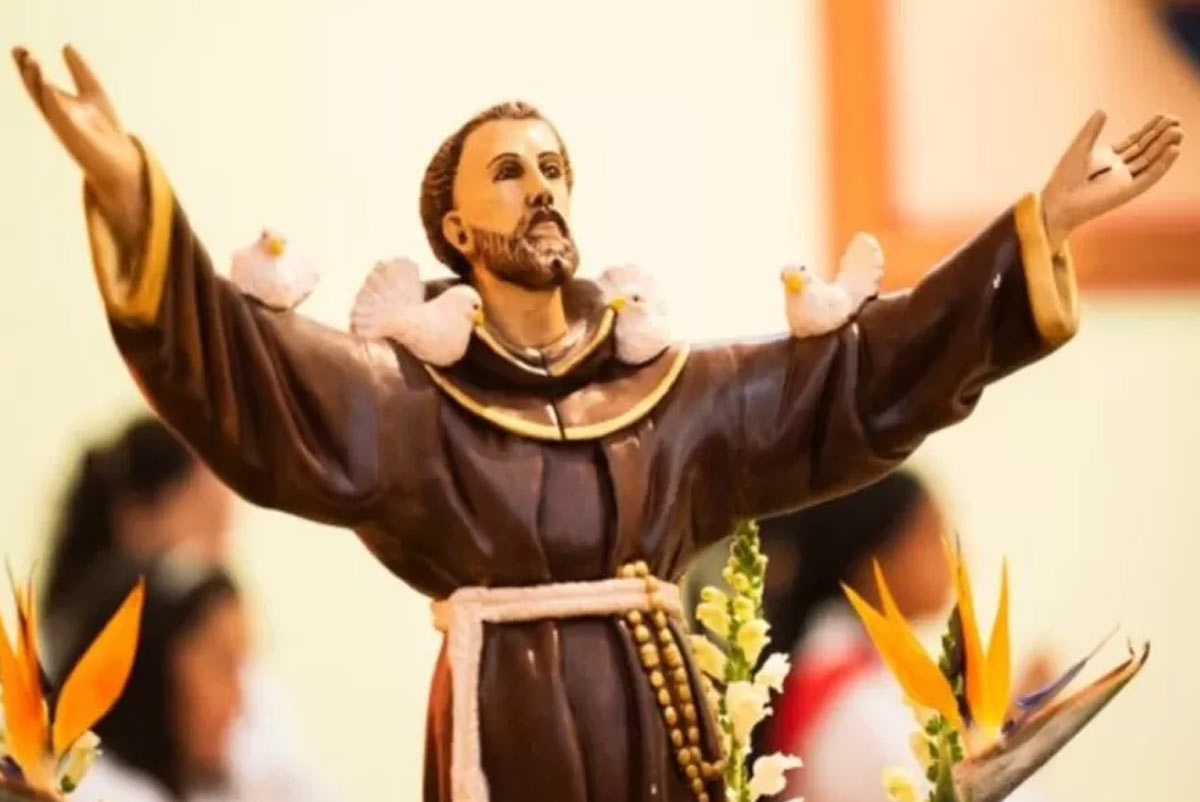In this post, we will explore the life of Saint Francis, his ecological legacy, and how his philosophy can guide us towards a more sustainable future.
Saint Francis of Assisi: A life of simplicity and devotion
Saint Francis was born in Assisi, Italy, in 1182. The son of a wealthy merchant, his youth was marked by a life of luxury and excess. However, after a profound spiritual experience, he renounced all his material possessions to live a life of poverty and service. What truly set Saint Francis apart from other religious figures of his time was his unconditional love for all creatures. He believed that animals were our "little brothers" and that all of God's creation should be treated with reverence.
This devotion to animals and nature can be seen in many stories from his life. One of the most famous is the story of the wolf of Gubbio, where Francis calmed a wolf that was terrorizing the town. Instead of killing the animal, as many had suggested, he negotiated a "peace" between the wolf and the townspeople, showing his belief that respect and communication were more powerful than violence.
Patron of Animals and Ecology
Saint Francis' connection to animals and nature was officially recognized by the Catholic Church. He was declared the patron saint of animals in 1931, and his feast day is celebrated on October 4. Many churches hold animal blessings on this day, where pet owners bring their animals to receive a special prayer.
But his role as a protector of nature goes beyond that. In 1979, Pope John Paul II proclaimed Saint Francis as the patron saint of ecology, recognizing his message of harmony between humans and the environment. Francis saw nature as an extension of divine love and believed that humans should care for it responsibly.

The Ecological Message of Saint Francis
Saint Francis' ecological vision is simple and powerful: all living beings are part of one big family. He taught that we should live in harmony with creation, respecting and protecting life in all its forms. At a time when nature was seen only as a resource to be exploited, he stood out for advocating care and preservation.
Today, Saint Francis' ecological legacy is more relevant than ever. The climate crisis, loss of biodiversity, and environmental degradation are challenges that require a shift in mindset. By following Saint Francis' example, we can adopt a more sustainable lifestyle, based on simplicity and respect for nature.
How to Honor Saint Francis' Legacy
There are many practical ways to incorporate Saint Francis' philosophy into our daily lives. Here are some suggestions for honoring his legacy and contributing to the protection of animals and the environment:
- Adopt sustainable living practices: Reduce your energy consumption, recycle, and opt for eco-friendly products. Small changes in daily life can have a big impact on the planet.
- Care for the animals around you: Whether adopting a pet, helping animal shelters, or simply showing respect for animals in nature, these actions reflect Saint Francis' teachings.
- Participate in environmental preservation efforts: Support organizations working to protect the environment, plant trees, or organize clean-up efforts in your community's green spaces.
- Educate yourself about ecology and animal protection: Knowledge is power. By learning more about the climate crisis and how to protect animals, you can become a more effective advocate for these causes.
- Celebrate Saint Francis' Day: On October 4, participate in celebrations and events dedicated to Saint Francis and his message of love for animals and nature.
The Contemporary Importance of Saint Francis
Saint Francis of Assisi's example goes beyond his time and place. He teaches us that true power lies not in domination, but in service; that true value is not found in wealth, but in simplicity; and that the true purpose of life is to live in harmony with creation. In a world increasingly disconnected from nature, Saint Francis' message offers an opportunity for reflection and change.
The environmental challenges we face today are complex and interconnected, and there are no easy solutions. However, by adopting a mindset of respect and care for the planet, as Saint Francis taught, we can begin to make a difference.
Understand that...
Saint Francis of Assisi, the patron saint of animals and ecology, left us with a powerful and inspiring legacy. His message of love and respect for all forms of life is more relevant than ever. In times of environmental crisis, we need to remember the simplicity and connection with nature that he valued so much. By following his example, we can build a world where humans, animals, and nature coexist in harmony.
Share this post on your social media and help spread Saint Francis' message so that more people can be inspired to care for our planet and our smaller brothers, the animals.
People also ask
Why is Saint Francis known as the protector of animals?
Saint Francis of Assisi is known as the protector of animals due to his deep connection with nature and his profound love for all living creatures. He saw animals as brothers, part of divine creation, and preached respect and compassion for all forms of life. His stories of care and protection for animals, such as the famous tale of the wolf of Gubbio, reinforce this legacy.
What is Saint Francis the patron of?
Saint Francis of Assisi is the patron saint of animals and ecology. He was officially recognized by the Catholic Church for his dedication to the protection of nature and living beings. Furthermore, his life of simplicity and harmony with the environment made him a symbol of defense for sustainability and care for the planet.
What is Saint Francis' feast day?
Saint Francis of Assisi's feast day is celebrated on October 4. On this date, many churches around the world hold special masses and blessings for animals, in recognition of Saint Francis' role as a protector of creatures and defender of nature.
Is Saint Francis the saint of animals?
Yes, Saint Francis of Assisi is widely revered as the saint of animals. His devotion to the care and respect for living beings led to his being named the patron saint of animals by the Catholic Church, and he continues to be celebrated by those who advocate for animal welfare and environmental preservation.

















Add comment